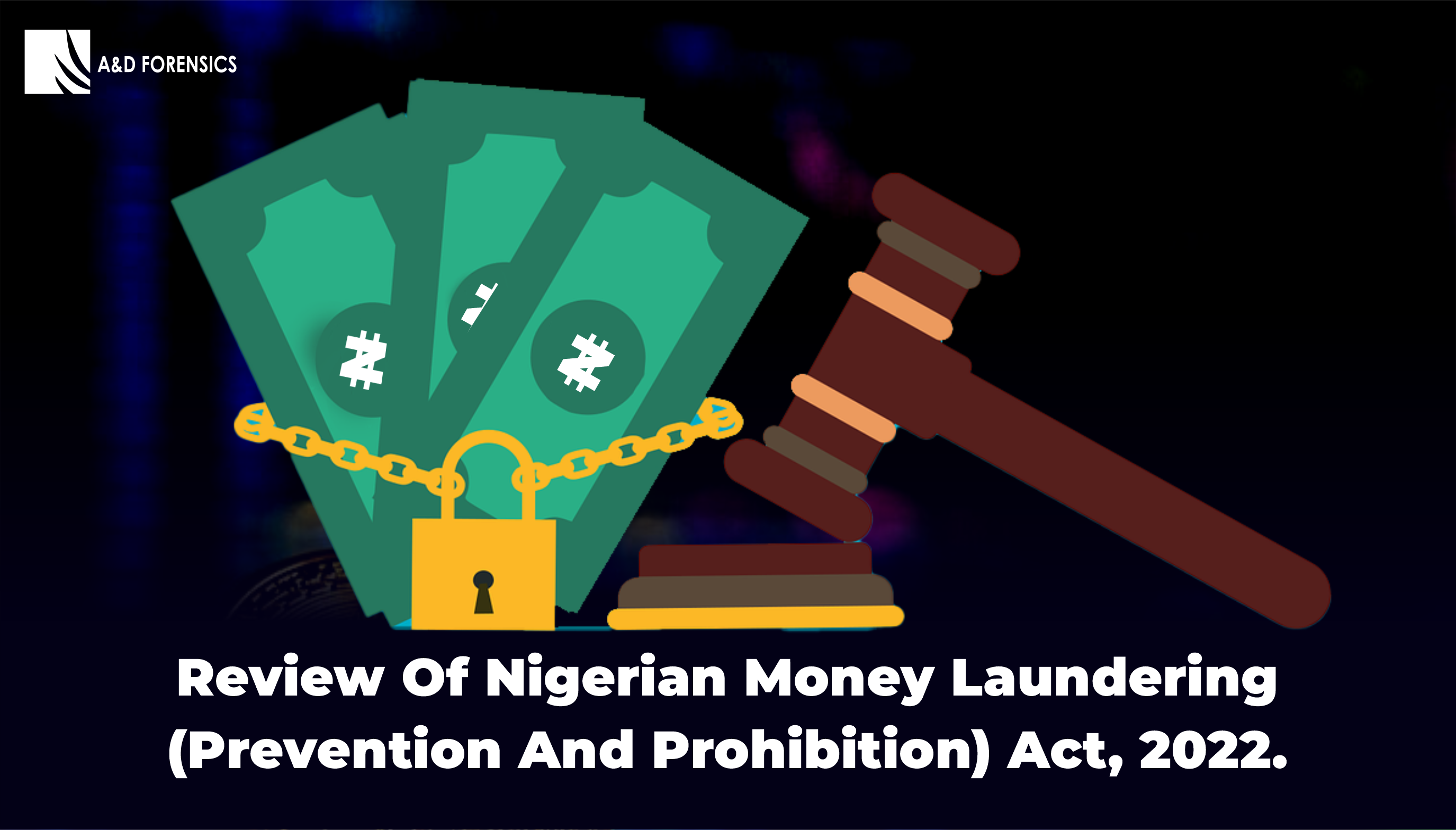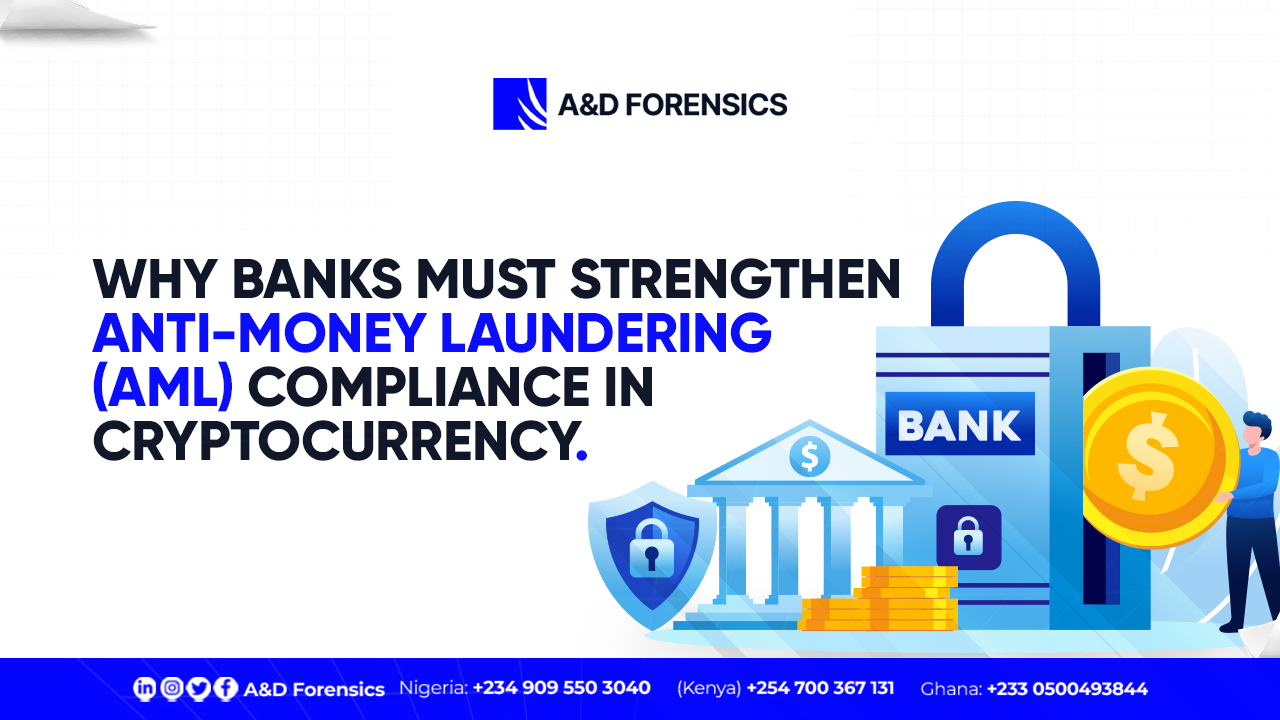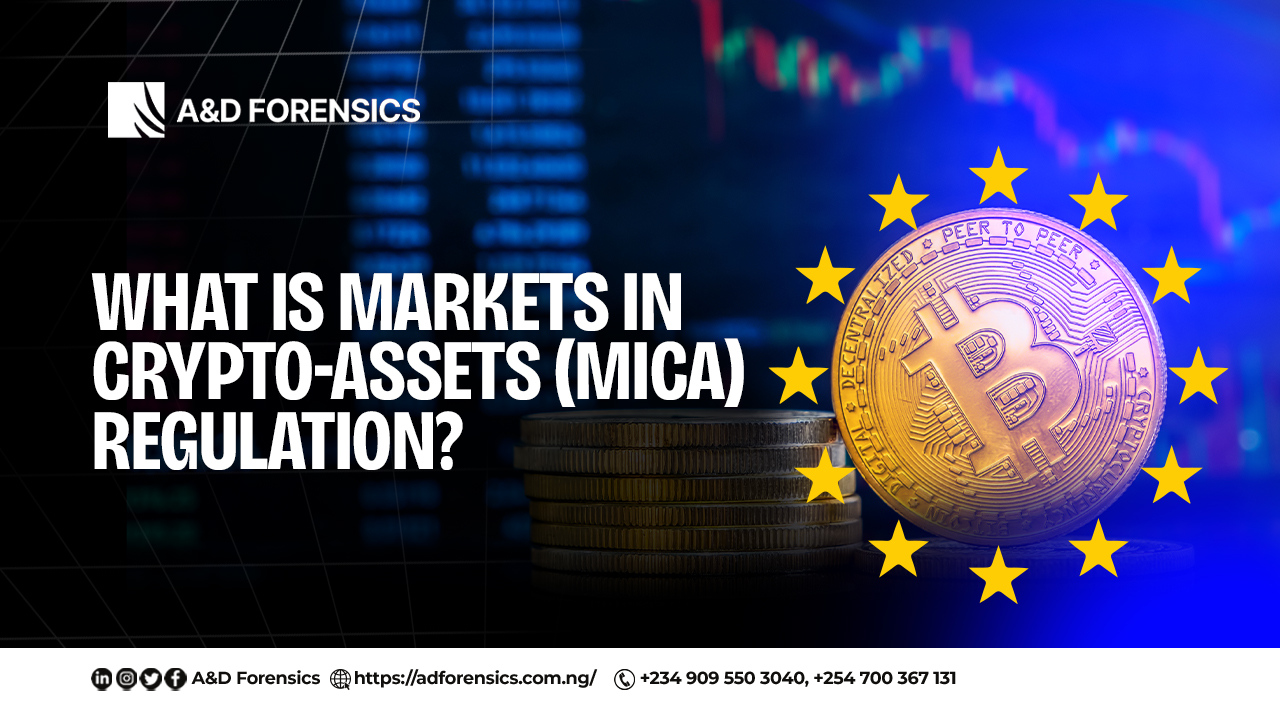The Federal Republic of Nigeria updated the Nigerian Money Laundering (Prevention and Prohibition) Act, 2022 in an official Gazette in May 2022. Here are some quick notes on some of the provisions that we think you should be familiar with. Remember, Ignorance of the law is no excuse.
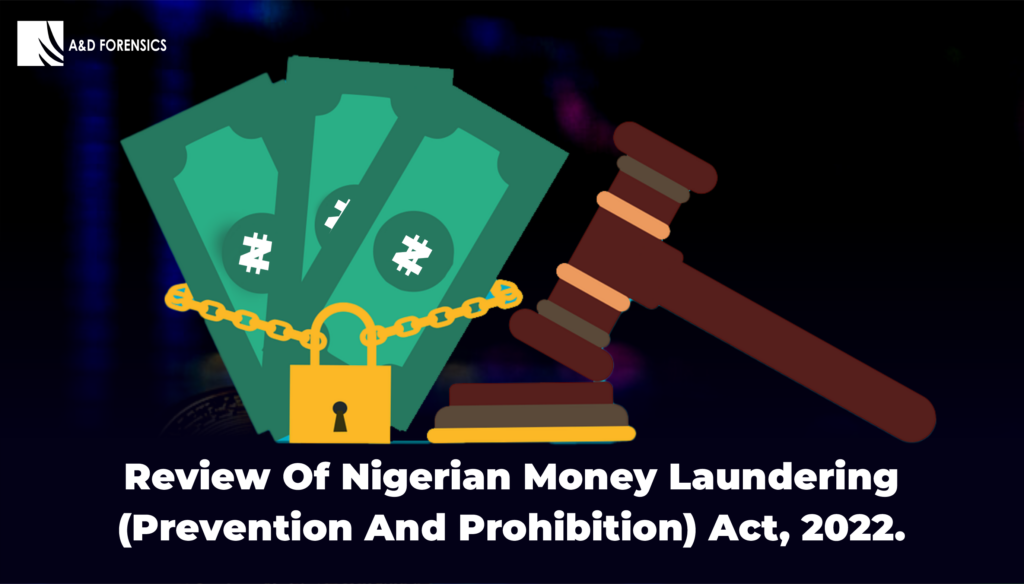
What is Money Laundering?
Money laundering is the practice of transferring funds gained through illegal activities like gambling, drug trafficking, corruption, or embezzlement into a legitimate source in order to conceal its true source.
What Provision Does the Nigerian Money Laundering (Prevention and Prohibition) Act put in place to prevent Money Laundering?
- Limitation to making or accepting cash payments.
- The Nigerian AML Act included provisions regarding the maximum amount of cash that either individuals or corporations could receive. The maximum is 5,000,000 (five million naira) for individual accounts and 10,000,000 for corporate entities (ten million naira). Even in this case, splitting money between accounts at one or more different financial institutions is prohibited, especially if there is strong evidence that the transaction was done without reporting it as required. With this, we all need to be careful with all our transactions even if done with the clearest of intentions.
- International Fund Transfer.
- With the intention of reducing/eliminating instances of money laundering, the Nigerian AML Act set a $10,000 limit on the amount that could be transferred during international fund transfers. If a transfer of $10,000 is made, a report must be filed with the Securities and Exchange Commission, the Central Bank of Nigeria (CBN), or Financial Intelligence Unit. The Report must include all pertinent information about the parties involved as well as the transaction itself.
- Any Transportation of cash or negotiable instruments in excess of US$10,000 or its equivalent by individuals in or out of Nigeria shall be declared to the Nigerian Customs Service, who will then report the total of all declared funds to the CBN.
- The act on this specific provision stated that the punishment for anyone who failed to declare to the Nigeria Customs Services as provided under section 12 of the Foreign Exchange (Monitoring and Miscellaneous Provisions) Act is liable to conviction and forfeiture of the undeclared fund or imprisonment for a term not less than 2 years or both.
- Know your customer (KYC).
- In order to prevent personification and identity fraud, the Nigerian AML ACT placed a strong emphasis on the need for financial institutions and designated non-financial businesses and professions to maintain and have documentary information and data of all details of their customers. This information includes the customer’s identity, the beneficiary’s identity, and the identity of anyone claiming to act on another person’s behalf. These facts and figures must be confirmed and compared with the parties’ identities and the specified threshold amounts. Due diligence must be carried out if there is even the slightest suspicion surrounding a transaction.
- Virtual Assets
General Funds include virtual assets under this law. In contrast to digital representations of fiat currencies, securities, and other financial assets, virtual assets are defined as digital representations of value that can be traded, transferred, or used for investment. So there is no escape route for anyone who would seek coverage under a digital asset valued above the already stated threshold.
- Casino Customer Identification
The Nigerian AML Act also mandated that all online and ship-based casinos members’ and customers’ identities and transactional information be recorded. To do this, a member or customer must present an original copy of their form of identification, which must include their names, addresses, and the amount of each transaction. This report must then be sent to the Unit, and the record must be kept for a minimum of five years. This clause serves the purpose of letting everyone who uses casinos as a means of money laundering know that the law has taken every precaution to achieve its objectives.
- Provision of reports by financial institutions and non-financial institutions
- The purpose of this provision is to require the aforementioned institutions to report any irregular or frequent transaction that appears suspicious due to its frequency or reasonableness; is surrounded by unusual or unjustified complexity; lacks any apparent economic justification or legitimate purpose; is inconsistent with the known transaction pattern of the account or business relationship; or is, in the judgment of a financial institution or non-financial organization, suspicious for any other reason. Failure to file a Suspicious Transaction Report will attract a fine of #1,000,000 each day. If the origin of such a transaction can not be stopped then the unit or the commission may seek an order from the Federal High Court for the account, funds or securities to be blocked.
- Anonymity
- An individual, financial institution, or corporate entity is not permitted to hold or maintain an anonymous or numbered account. The act, in accordance with the same provision, outlawed the ownership and operation of shell banks in Nigeria. Any infraction will result in a 2-year prison sentence (but not more than 5 years) or a 10 million naira (but not more than 50 million naira) fine.
- Inclusion of politically exposed persons (PEP)
- The act issued a directive to financial institutions, non-financial institutions, and professions to develop a system or a mechanism that will dictate, and analyze whether a particular customer or customers are politically exposed persons.
- Politically exposed persons are individuals who are or have been entrusted with prominent public or private functions by a foreign country, or domestic or international organization.
- A shell bank is one that is not physically located in the country where it is incorporated or licensed to operate.
Summary of Some Unlawful Acts Described in Subsection 2 of the Nigerian Money Laundering (Prevention and Prohibition) Act, 2022
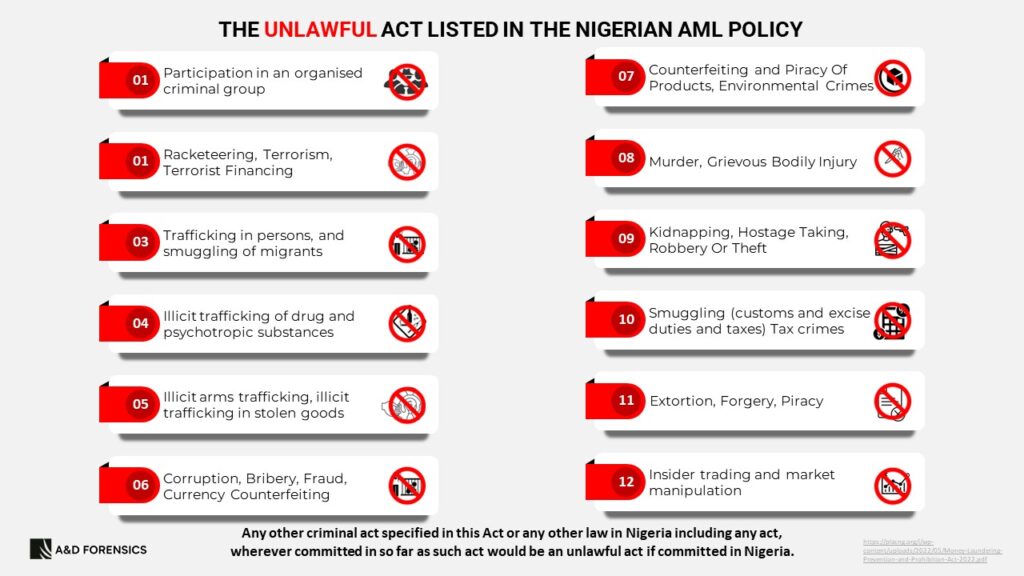
- The Act established a SPECIAL CONTROL UNIT AGAINST MONEY LAUNDERING
- This department is responsible for recording, overseeing, and monitoring all transactions involving non-financial institutions as well as their operations.
CONCLUSION
Nigeria forbids the practice of money laundering either with Fiat or Virtual Assets as seen in the Nigerian Money Laundering (Prevention and Prohibition) Act, 2022 . Any person or organization, whether inside or outside of Nigeria, who intentionally, knowingly, or reasonably ought to have known that such fund or property is, or forms part of the proceeds of an unlawful act, (a) conceals or disguises the origin of, (b) converts or transfers, (c) removes from the jurisdiction, or acquires, uses, retains, or takes possession or control of any fund or property, commits money laundering under this Act.
Hence, anyone who violates subsection (2)’s rules is responsible upon conviction, to a sentence of not less than four years, nor more than greater than 14 years or a fine not less than five times the value of the proceeds of the crime or both.
A&D Forensics is committed to ensuring the prevention of Money Laundering and Terrorist Financing with Virtual Assets. Contact us for any of our services.
Contributor: Ugwu Chikezirim




